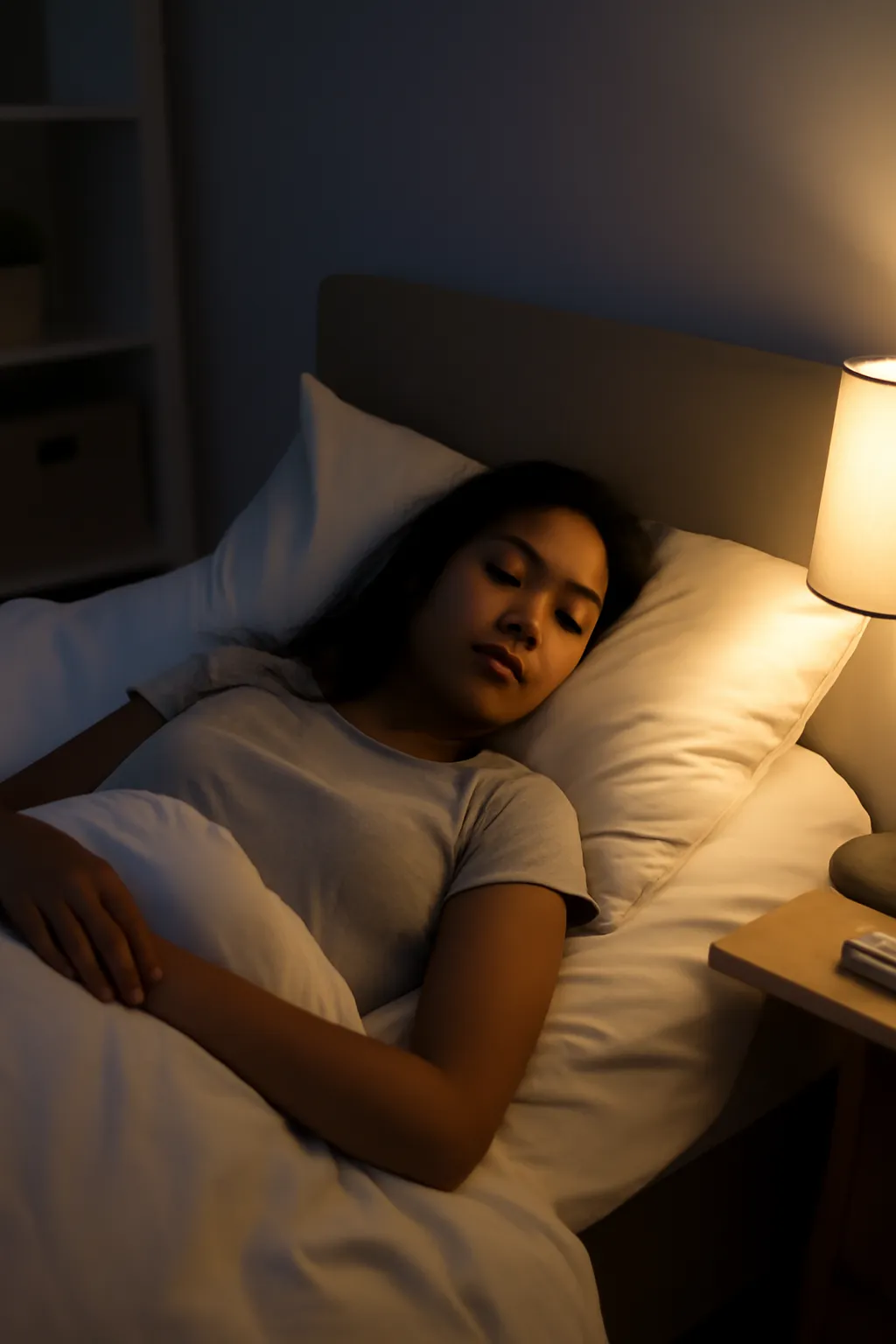Are you wondering how much sleep high school students should get each night? Discover the recommended sleep times, the effects of lack of sleep, and why sleep is crucial for academic performance and overall health.
Sleep is an essential part of every teenager’s life, especially for high school students who are juggling school, extracurriculars, and social activities. But how much sleep do they actually need? It’s not just about the hours but about quality sleep that supports their mental and physical well-being. In this article, we’ll explore the ideal sleep times for high school students, how much sleep they are actually getting, and the effects of poor sleep.
High School Student Recommended Sleep Time
The recommended sleep time for teenagers is around 8 to 10 hours per night. According to the American Academy of Sleep Medicine (AASM) and the Centers for Disease Control and Prevention (CDC), adolescents aged 14-17 need this amount of sleep to maintain optimal health, both physically and mentally.
Why is it that high school students need more sleep than adults? Teenagers go through significant hormonal changes that affect their sleep cycles. Their natural sleep-wake cycle, known as the circadian rhythm, shifts during adolescence. As a result, they tend to feel more awake late at night and want to sleep in longer during the morning. This shift makes it harder for them to wake up early for school, but it also means they need more sleep at night to compensate.
Benefits of Adequate Sleep:
-
Improved Academic Performance: Sleep enhances memory, learning, and focus. A rested brain is more alert and able to absorb information.
-
Physical Health: Proper rest boosts the immune system, regulates hormones, and supports physical growth during adolescence.
-
Mental Well-being: Quality sleep reduces stress and anxiety, promotes emotional stability, and can reduce the risk of depression.
Despite knowing the benefits, many students struggle to get enough sleep due to busy schedules. Sleep deprivation has become a widespread issue among high schoolers, with many opting to stay up late to study or engage in social media.
Learn More About Healthy Sleep
High School Student Sleep Time: The Reality
Despite recommendations, the average sleep time for high school students often falls short. Studies show that most teenagers only sleep for 6 to 7 hours on school nights. This is significantly less than the recommended 8 to 10 hours and can have serious consequences for their health.
Several factors contribute to this sleep deprivation:
-
Academic Pressures: The increasing demands of homework, projects, and exams often push students to stay up late. Some students even sacrifice sleep to cram for tests or finish assignments.
-
Social Media and Screen Time: The use of smartphones and other devices late at night disrupts the sleep cycle. Blue light emitted by screens interferes with the production of melatonin, the hormone responsible for making us sleepy.
-
Extracurricular Activities: High school students often have packed schedules with sports, music, and other activities that end late in the evening, further cutting into sleep time.
Effects of Insufficient Sleep:
-
Cognitive Impairment: Lack of sleep negatively affects concentration, decision-making, and problem-solving skills.
-
Mood Swings: Sleep deprivation is linked to irritability, moodiness, and heightened stress levels.
-
Weakened Immune System: Chronic sleep deprivation weakens the immune system, making students more susceptible to illness.
It’s clear that students are not getting enough sleep, and the consequences can be far-reaching. How can this be addressed? Schools, parents, and students must work together to prioritize rest.
Find Tips on How to Improve Teen Sleep
Average Sleeping Time for High School Students
In countries like South Korea, the situation is even more alarming. Studies show that Korean high school students have some of the lowest sleep times in the world, often sleeping just 4 to 5 hours on school nights. This is partially due to the intense academic pressure and the cultural expectation to study late into the night.
On average, high school students across the globe sleep about 6 hours a night. But when students consistently get this little sleep, the impact on their well-being can be severe. Research has shown that insufficient sleep leads to slower reaction times, difficulty retaining information, and even an increased risk of accidents. Furthermore, students who regularly sleep less than 7 hours a night have a higher likelihood of developing mental health issues like anxiety and depression.
Why Is This Problem So Persistent?
-
School Start Times: Many schools start early in the morning, making it hard for teenagers to get enough sleep. Changing school start times to later in the morning has been suggested as a potential solution, but it requires widespread cooperation.
-
Peer Pressure: Teenagers may feel the pressure to stay up late to socialize or keep up with friends on social media. This contributes to late nights and insufficient sleep.
-
Caffeine Consumption: Many high school students rely on caffeine to stay awake during the day, which can disrupt their sleep patterns, creating a cycle of poor sleep.
While the situation may seem dire, there are ways to make improvements. Schools can implement later start times, families can establish healthy sleep routines, and students themselves can prioritize better sleep hygiene.
Discover More About Teen Sleep and How to Improve It
Conclusion
In conclusion, sleep is not just a luxury but a necessity for high school students. Getting the right amount of sleep can boost academic performance, improve physical health, and promote emotional well-being. Unfortunately, the reality is that many high school students are not getting enough sleep, often averaging just 6 hours a night instead of the recommended 8 to 10. The consequences of this are far-reaching, affecting everything from mood to cognitive function.
As a society, we need to prioritize better sleep habits for our teenagers. Schools, parents, and students must take responsibility to ensure that sleep becomes a non-negotiable part of daily life. After all, a well-rested student is not only more successful but also healthier and happier.






